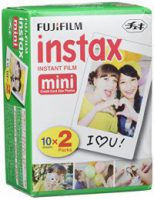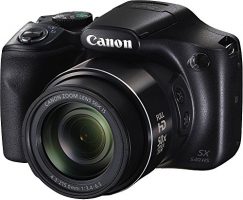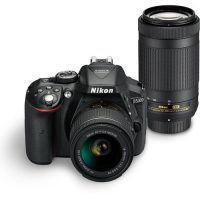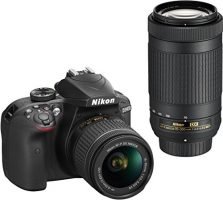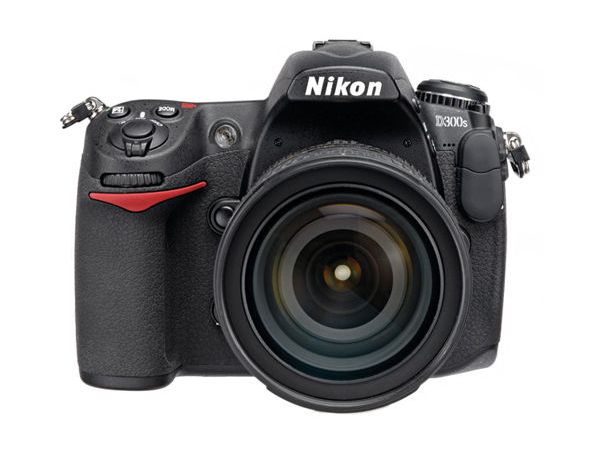
At times it can seem DSLR-makers only add features when they need to, but the Nikon D500 has fairly up-to-date wireless connectivity. It has Wi-Fi, and NFC to make pairing with compatible phones that bit easier.
Cameras like the Nikon D500 are not intended to lure you in with flashy extras, though, or to provide the sort of speed pro action shooters are after. Instead, you get solid everyday speed that actually falls slightly below several rival CSCs at the price, at this point.
The software side of the Nikon D500 Wi-Fi also wipes the floor with that of most other manufacturers. As well as transferring images and controlling the shutter remotely, you can alter camera settings like aperture, shutter speed and ISO from your mobile phone or tablet. Not bad, right?
There’s also a small pop-up flash, again giving you a sense of having all you need to get on with, adding to the Nikon D500’s accessibility.
What is the Nikon D500?
The Nikon D500 is a DSLR that, while not bottom-rung like the EOS 1200D, is reasonably affordable, and offers simple operation that’ll appeal to those who don’t want to get knee-deep into the manual side of photography. It gets you the DSLR benefits of lens choice and good image quality, without the daunting learning curve.
The DIGIC 6 processor lets you shoot at 5fps, which has become the bog-standard speed level for any self-respecting everyday DSLR. It’s the same speed as the 700D too. What has changed, though, is the buffer. The 8-frame RAW file limit may not sound impressive, but being able to shoot up to 940 JPEGs in burst does.
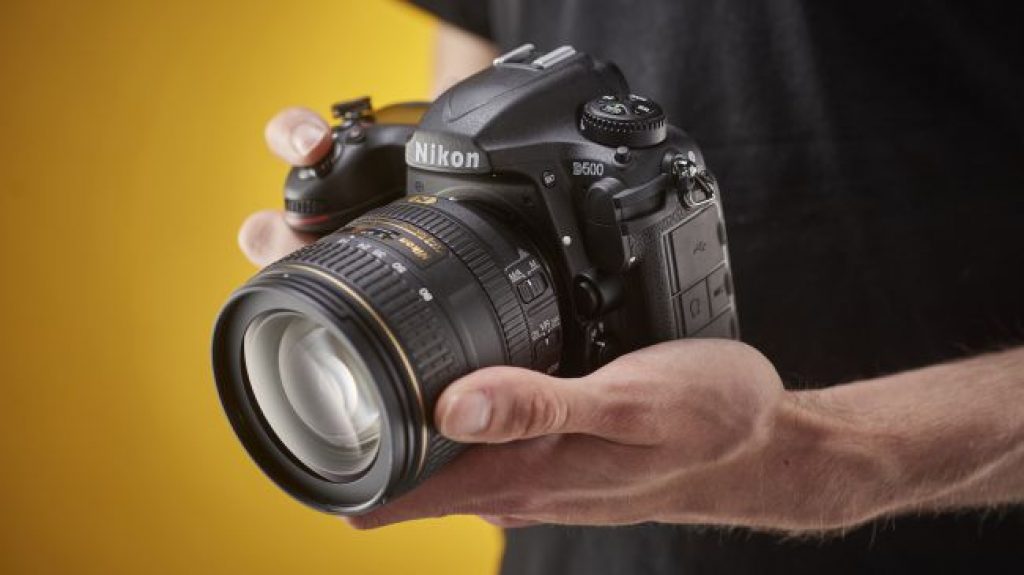
If you’re keen to dive right into some of the more advanced principles of photography, also consider the Nikon D500, which has the same insides but more manual controls.
Want to keep it simple? The only serious issue with the Nikon D500 is that it doesn’t offer as good dynamic range as its rivals, the Nikon D5500 and Pentax K-S2.
50D: Design and Handling
If jaw-dropping, dynamic style is high on your camera priority list, you’re unlikely to come to a DSLR for it. The Nikon D500 has the classic DSLR look, with a chunky black body that most people will only be able to set apart from other entry-level models by looking at the name badge.
It’s practical, not a preener.
Being a lower-end model, the Nikon D500’s outer parts are polycarbonate rather than magnesium alloy, which is only found on rather more expensive models. It doesn’t feel ultra-high-end, then, but its still tough.
There’s no creaking or warping of the parts that make up the Nikon D500’s shell, and it has an aluminium skeleton underneath the plastic to help keep everything rigid. A slightly lower-end construction also helps keep the camera light.
It’s 25g lighter than its predecessor the Nikon D500, and feels nicely low-heft for a DSLR
It’s 25g lighter than its predecessor the Nikon D500, and feels nicely low-heft for a DSLR, without getting rid of the large hand grip. The next step would be to add weatherproofing to more affordable cameras like the Nikon D500, but that’s not here yet. This is still reserved for Canon’s more expensive cameras.
A light, polycarbonate body camera may become a disadvantage if you’re looking to mount giant fast lenses, but if you want to sample some of Canon’s cheaper high-quality options like the bargain 50mm f1.8 lens, they’ll suit the Nikon D500 perfectly.
What’s rather more specific to the Nikon D500 is a very laid-back control style. It has just the single manual control wheel up on the top plate, and a very easy-to-reach mode dial.

This style is a total opposite to the 750D’s brother, the Nikon D500. That model is roughly £50 more and gets you more manual controls plus an extra display on the top plate, for a much more ‘pro’ feel.
If you think your next camera is likely to be a stepping stone onto more serious photography and, one day, a real top-end DSLR, the 760D is a much better bet. Think you’ll stay best friends with the Auto mode? There’s no shame in picking the Nikon D500. By cutting down on the number of controls has been able to make the few that do feature very easy to access. This camera is easy to use, and — let’s not overstate the matter — does still give you plenty of manual control if you’re after it.
The mode dial features priority modes that let you control one main element such as aperture or shutter speed, letting the camera sort of the rest to best suit that setting. We use these easy manual modes about 90 per cent of the time.
Nikon D500: Screen and EVF
The Nikon D500 provides all the basics when it comes to previewing and reviewing your images. There’s a 3-inch vari-angle display on the back whose panel is the same found on the 700D. It’s a 1.04-million-dot Clear View II LCD, with a 3:2 aspect to match the camera’s sensor. Touchscreen support means you can pick your focus point with a finger when using Live View too.
Fitting in perfectly with the camera’s fairly easy style, the Nikon D500 screen tilts out and up/down to make seeing what you’re shooting when holding the camera above or below your head easy. And at all sorts of odd angles. It’s a smooth, high-quality vari-angle mechanism.

Unlike most DSLRs, there’s also not a huge performance penalty for using the LCD rather than the viewfinder to preview the image, called Live View in photography circles. As the Nikon D500 uses on-sensor phase detection pixels rather than stepping right down to pure contrast detection software AF, it stays quick.
The one complaint we do have is about the viewfinder, not the screen. Being a cheaper model, it only offers 95 per cent coverage of the frame, meaning the shot will actually capture a bit more than you can see through the viewfinder. That’s the same coverage as the Nikon D5500, although the similarly-priced Pentax K-S2 manages 100 per cent coverage.

